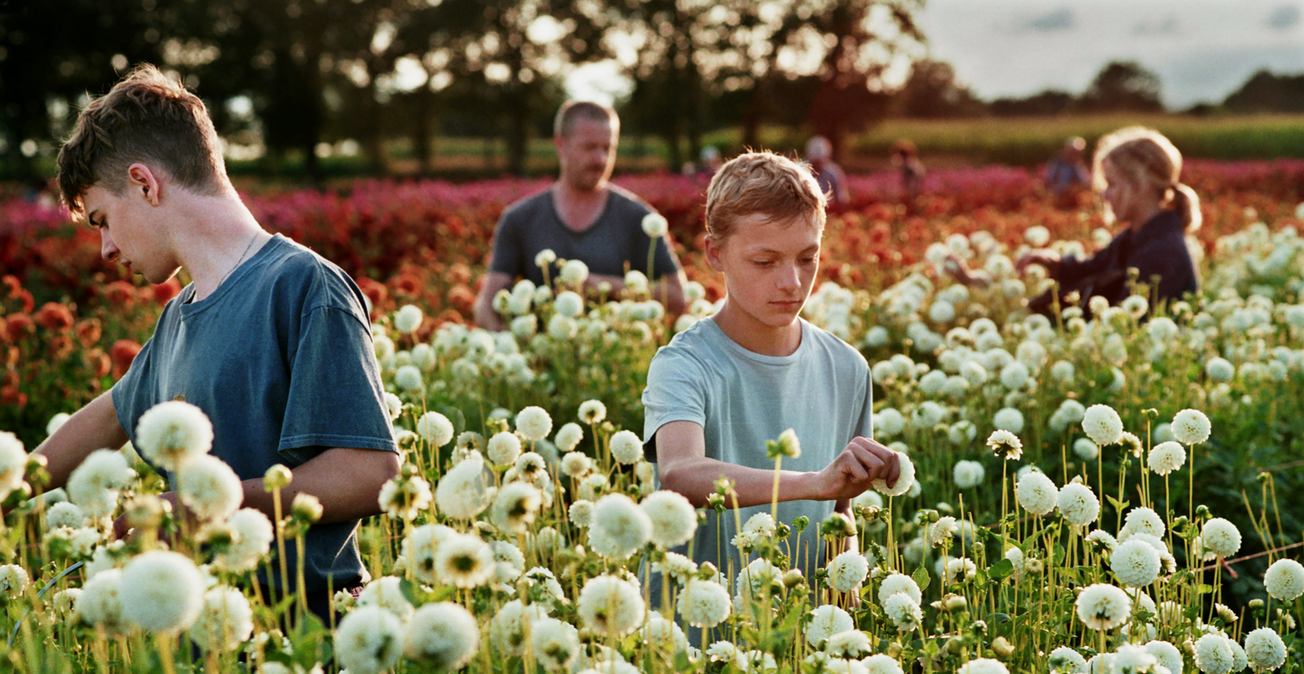By Tara Bell, Second year, English
Close (2022), directed by Lukas Dhont, follows the beautifully intimate relationship of two thirteen-year-old boys, Léo (Eden Dambrine) and Remi (Gustav De Waele), and their tragic struggles to remain close amidst the pressures of growing up.
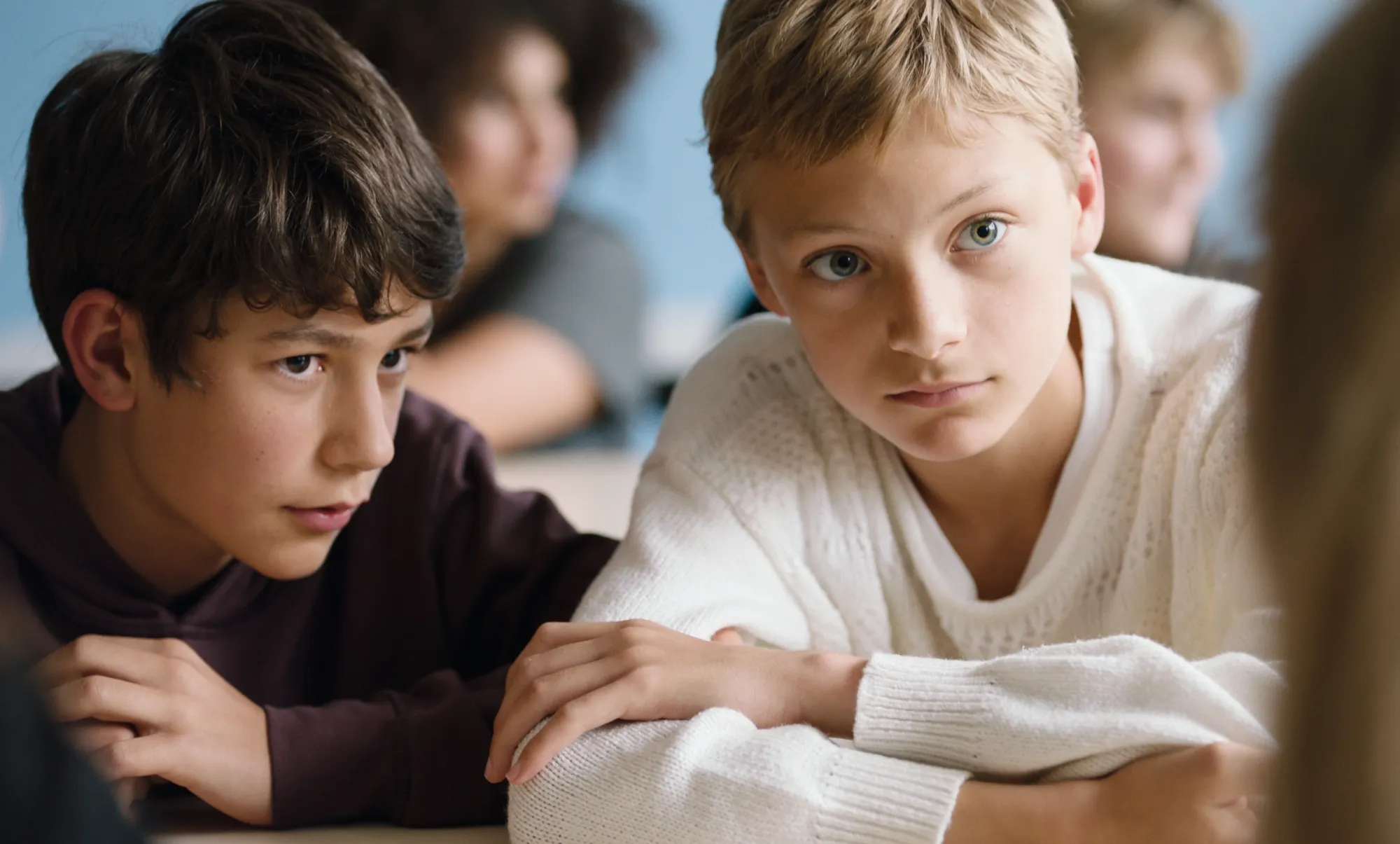
Although never explicitly stated, it’s clear that the boys feel more than platonic love for each other. We watch events unfold through Léo’s view, and there are multiple scenes where we see Léo gazing at Remi, his face in focus as all else around him blurs, and so we begin to see Remi as the image of perfection and beauty that Léo sees him as.
In the scenes where the boys are alone together, Dhont uses a lack of dialogue to make us feel as if we are an intruder in the all-encompassing bond they created. We are forced to pay attention to every smile and flicker of their eyes, and Dambrine portrayed Léo’s raw emotion and admiration for Remi so effortlessly, as his eyes became a mirror into Léo’s private thoughts. We were taken on an emotional journey with him.
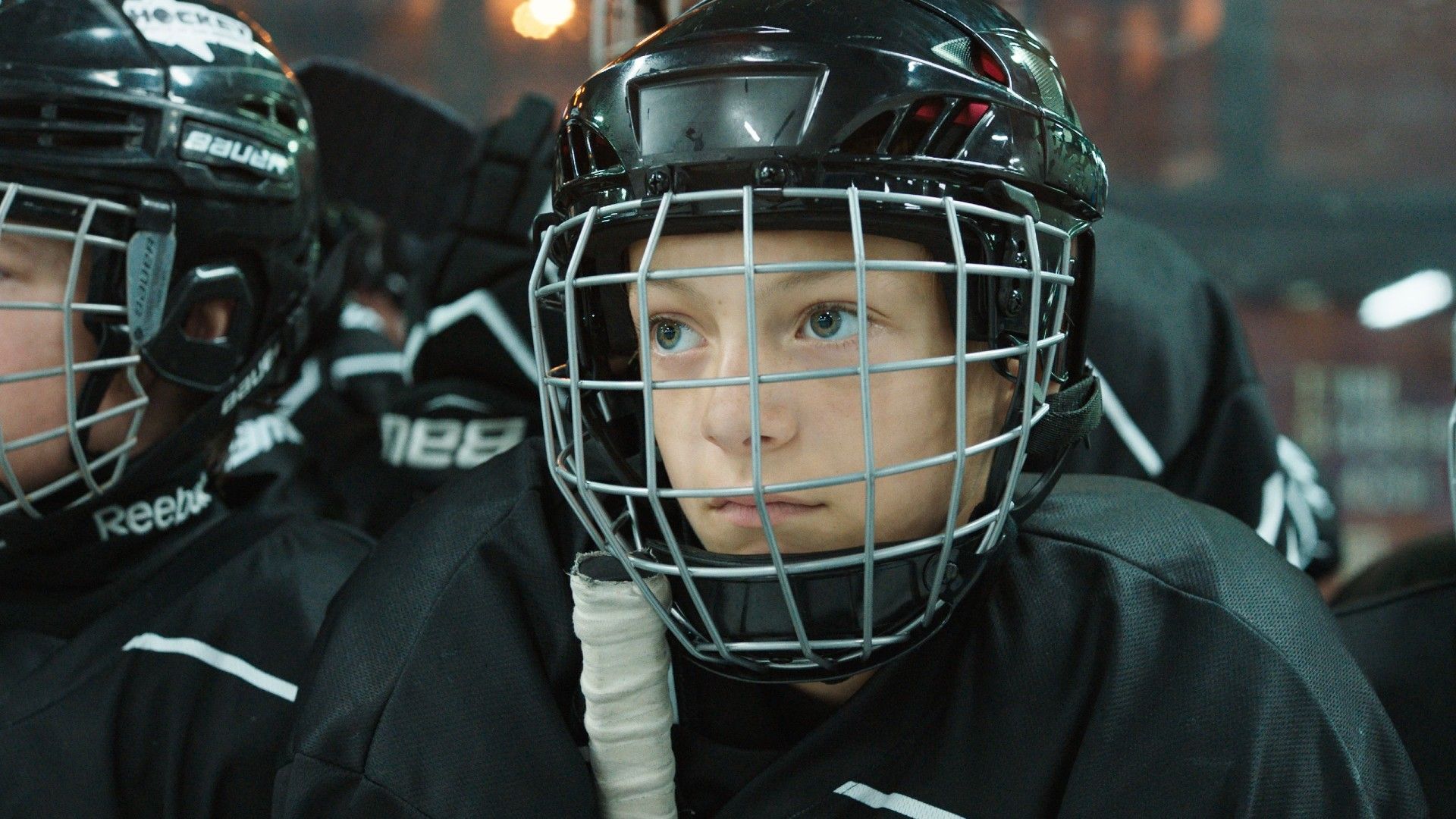
But, this lack of communication is what ends their closeness: Dhont intimately shows the boys’ inability to articulate their feelings to each other, and their inability to conceptualise their feelings within themselves.
The film begins with a black screen, and we can hear only the boys laughing, and shushing each other, whilst birds sing in the background. We realise they are play-hiding from an army, pretending that they are about to be attacked and the only way to escape is to run.
The cinematography gorgeously encapsulates the innocence of this fantasy. They sprint through fields of yellow and pink flowers as the sun illuminates them in gold, and this sets up their tendency to hide not only from others but also from each other throughout the rest of the film. As they are stood together in school for the first time, the camera zooms out to show the other kids surrounding the boys, seemingly swallowing them, and infiltrating the little world they have created in each other.
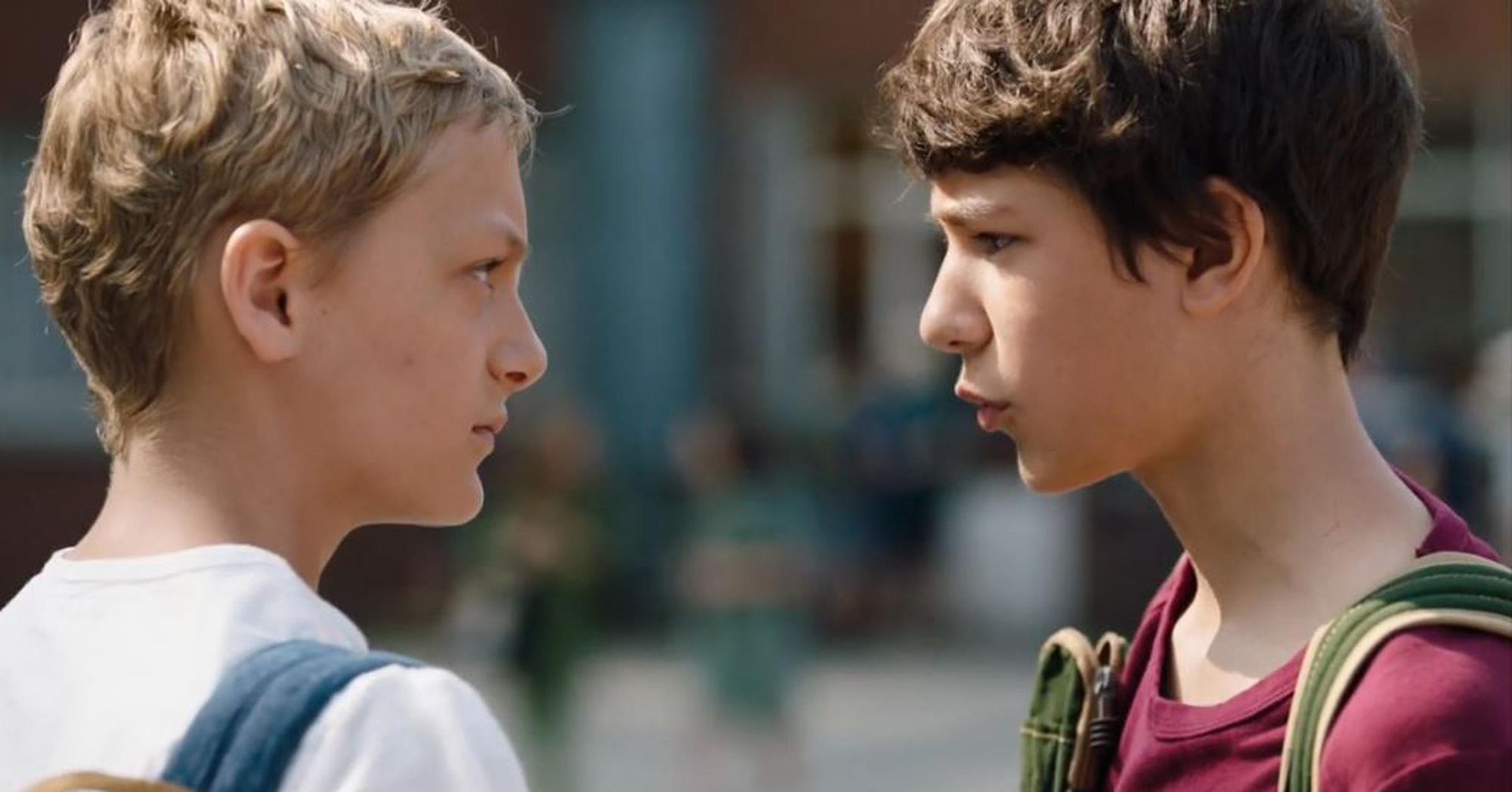
[Spoilers ahead!]
Dhont captured the immensely damaging effects of grieving someone you love; Dambrine and Emilie Dequenne were incredible in portraying their character’s raw, dark emotions at Remi’s untimely death. And as Léo helps his family in farming, cutting, and boxing away the flowers that he and Remi once ran through, we see their innocent dream is tainted, and Leo’s world has lost its beauty.
Yet, as much as I loved how Dhont explored the complex effects that grief and the internal violence not ‘fitting in’ had on Leo, I am not a fan of the continued exploitation of queer relationships in cinema, and how they are always portrayed as tragic, hopeless, and a faraway, fearful dream that must stay hidden in the psyche.
The ‘bury your gays’ trope is very overused, and I think more films should start showing the beautiful sides of queerness instead.
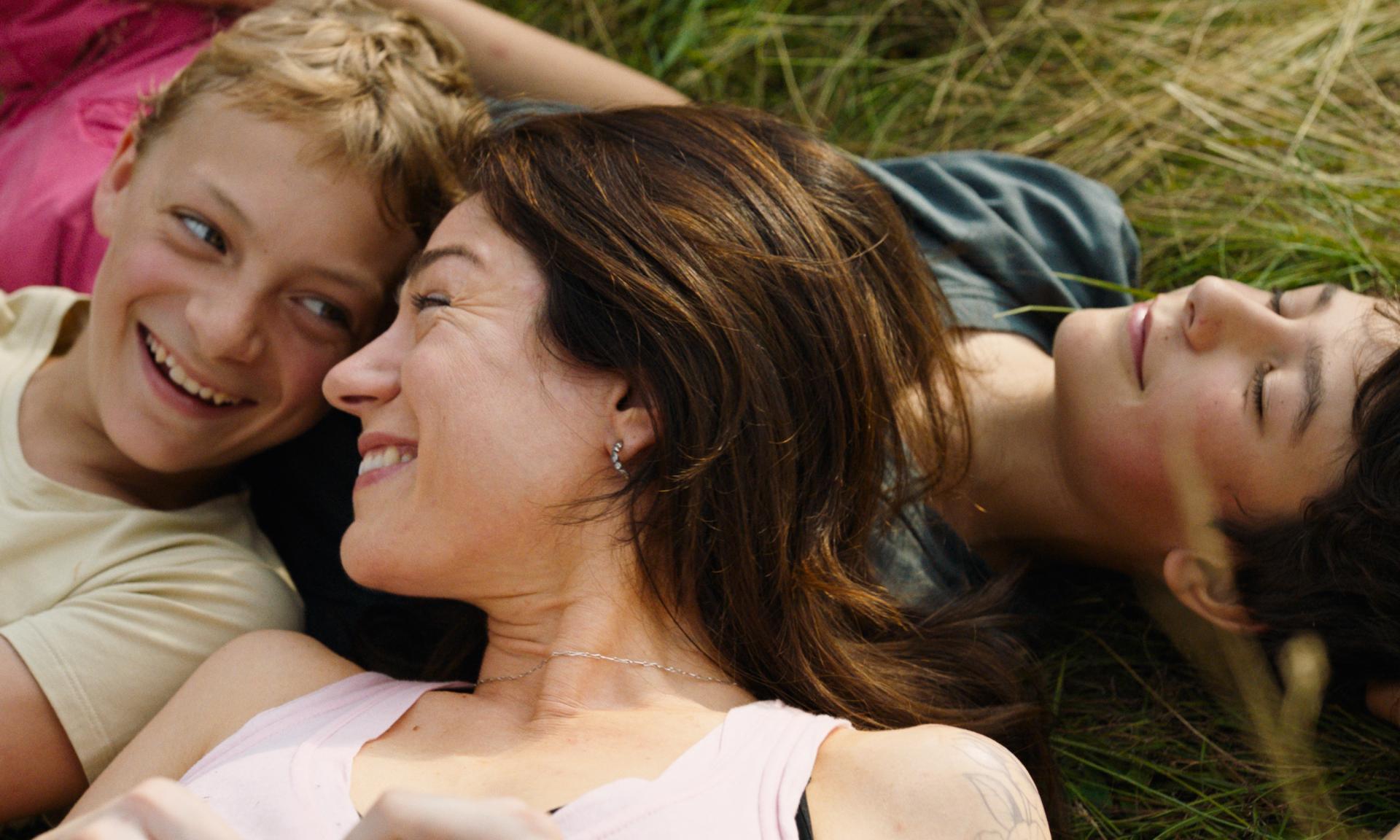
There is a scene where the boys are lying on the grass together, and Léo says, ‘dreaming isn’t a bad thing’ - the first half of the film showed the beauty of the boys’ infatuation for each other, but ironically, Remi’s excessive dreaming is what ended their closeness. This is not to say that filmmakers should ignore the hardships of homophobia and show all queer relationships as easy, but Dhont didn’t fully explore this either.
It seemed that Leo’s perception of Remi starkly fell from intense adoration to indifference, as if ideas of queerness or masculinity were not worth fully delving into. So, whilst Close was one of the rawest coming-of-age films I have ever seen, I wish the second half were as powerful as the first.
Featured Image: Courtesy of Kris Dewitte and IMDB
Tickets for this BFI London film are selling out fast; keep your eyes peeled for any new screenings near you!

